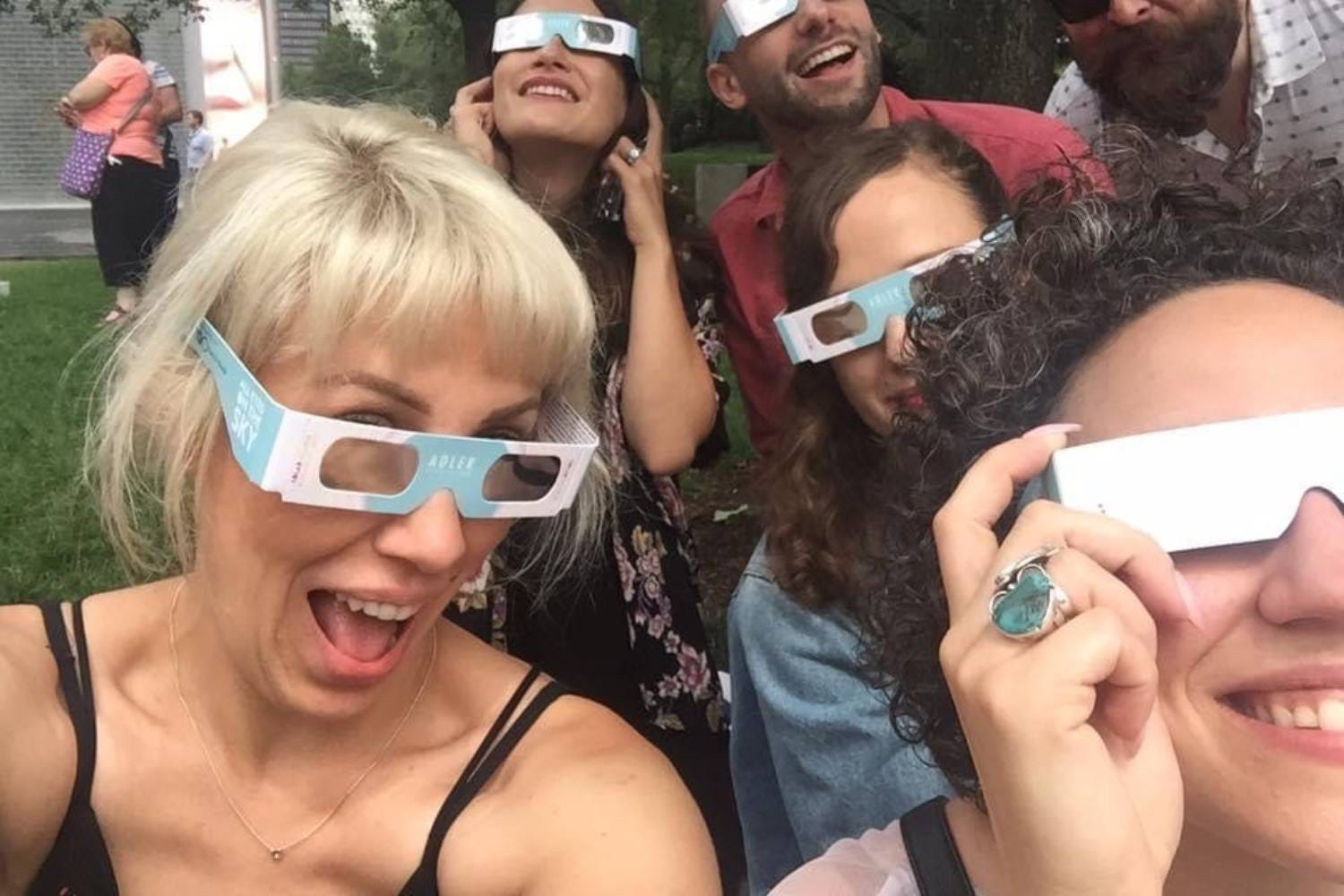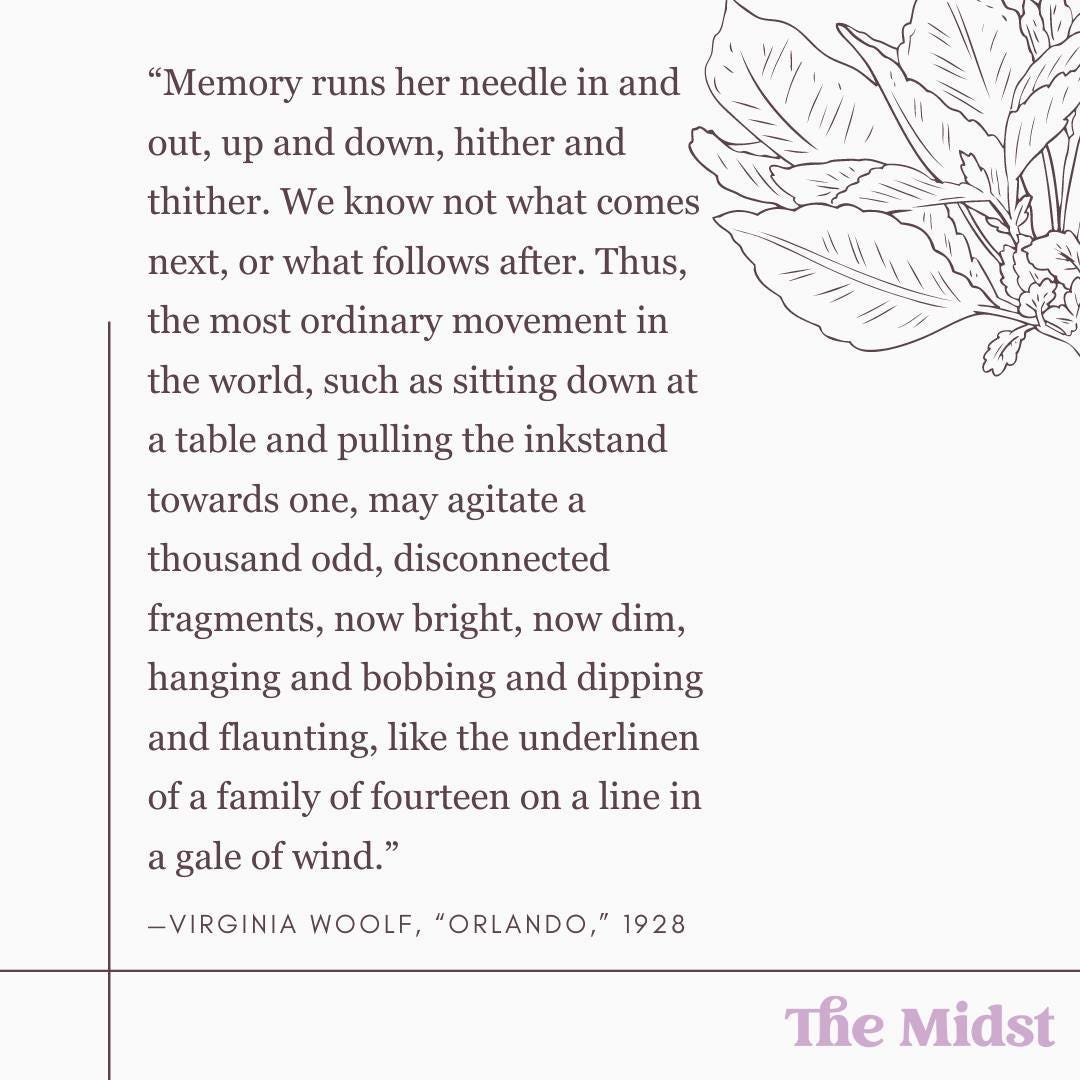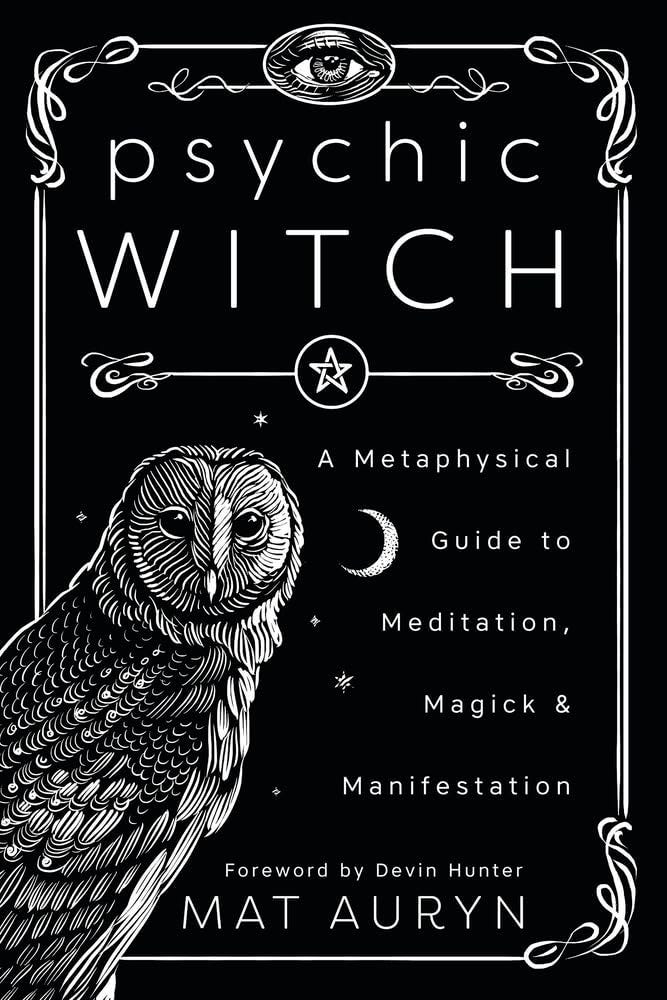Total eclipse of the hype? What will you remember?
Plus: Menopause and memory loss: Should you be worried? • A book for manifesting your sacred energy
BeWell | The Midst beauty, style & wellness newsletter
Exclusive for subscribers to The Midst Substack
“I doubt if the effect of witnessing a total eclipse ever quite passes away. The impression is singularly vivid and quieting for days, and can never be wholly lost,” expressed Mabel Loomis Todd in her book Total Eclipses of the Sun, after traveling from Amherst, Massachusetts, to Japan to study the total solar eclipse on August 19, 1887.
I almost forgot about my lunchtime act of shadow-chasing a mere seven years ago, when the last solar eclipse graced Chicago, and my coworkers and I braved the free moon glasses, handed out all over the city, to witness the celestial act. That’s not to say that it wasn’t beautiful, but sometimes all the hype of something extraordinary can minimize the meaning of its experience, thus minimizing its memory.
Shadows and reflections
Umbraphiles — or “shadow chasers,” another term for eclipse fanatics — have had hotel rooms booked for months in seemingly random areas like Carbondale, Illinois, to stand in the path of the solar eclipse tomorrow. They express the experience as a feeling of complete awe, where the sky turns temporarily dark during the day — to feel how very little we all are in this massive universe.
Tomorrow also marks a new moon — when the moon is directly between Earth and the sun, with its shadowed side pointing towards us, blending into the night sky. In astrology, the new moon indicates new beginnings, obviously also meaning the end of something else. As farmers follow this lunar cycle to plant their crops, a new moon likewise represents a time to plant “seeds” and intentions for the future. This time of reflection is revered by many cultures and can be easily adapted into practice with meditation and journaling what we’d like to manifest.
As tomorrow approaches, I hope you grab your moon glasses or piece of paper with a tiny hole in it (remember that from grade school?), along with a moment to write down a few wishes and goals. While we don’t need shadows or moons to encourage us to live, sometimes the darkness can be a good reminder of what’s bright.
Menopause and memory loss: Should you be worried?
By Anne Holub
Dementia runs in my family, so when I was in my early 40s and I started struggling to remember words or flaked appointments, I was scared. I chalked it up to being a super busy, stressed out lady who took on too much and needed to get some bullet journals. Turns out, it was just perimenopause!
That’s right, it’s totally normal to have some bouts of memory loss before, during, or even in years after menopause. It’s one of the super fun aspects of aging as a woman that nobody talks about – or that anyone even gives you a heads up on!
Consider this a public service announcement, ladies! You’re not going crazy, and you’re not even experiencing early onset cognitive decline (at least, probably – more later) – it’s just menopause.
What science says about menopause and memory loss
There have been many studies of memory problems during perimenopause, menopause, or even post-menopause. One study, quoted in a 2014 article in the journal Integrative Medicine Insights, noted a variety of memory concerns from 40-something women. In a study of 230 women in Seattle, 62% of the women “reported noticeable declines in cognitive performance following menopause. The most common complaints were difficulty recalling words or numbers, needing memory aids, and forgetting why one was involved in a certain behavior.”
Another study noted in the article found that women who were either experiencing perimenopause or who were post-menopausal were three times more likely to report memory complaints than pre-menopausal women. And yet another study of 120 Austrailian women found that nearly 82% of the sample group reported memory complaints!
So we’re really not alone. We just often don’t voice our concerns loud enough to get the help we deserve!
“Mentioning memory loss and hot flashes can feel akin to talking about taboo topics like gastrointestinal issues,” says Louann Brizendine, professor of psychiatry at the University of California at San Francisco and author of “The Upgrade: How The Female Brain Gets Stronger And Better In Midlife And Beyond.”
Instead, she notes, we need to reframe the experience of midlife. Talk about your 40-something years as a time when you started your “upgrade,” – no midlife crisis here! It’s when you’re confident, creative, and fully in charge of your own self. You’re a grown-ass lady!
Memory loss: It’s not all in your head
As I mentioned above, yes, your memory issues could be “just a phase” due to your fluctuating estrogen levels. But sadly, for 20% of women, there could be a later development of dementia. But at the same time, doctors also don’t truly understand what happens to the brain during menopause, nor do they know the exact connection between menopause and diseases like Alzheimer’s. They can only draw some connections based on research.
“Some of the brain regions that are impacted by menopause are also some of the regions impacted by Alzheimer’s disease,” notes Dr. Lisa Mosconi, a neuroscientist and director of the Women’s Brain Initiative at Weill Cornell Medicine, in a recent New York Times piece. The article also notes that the symptoms of menopause themselves, such as lack of sleep and hot flashes, have also been linked to dementia. One 2022 study found that “hot flashes were associated with an increased amount of tiny lesions in the brain, which are a sign of declining brain health.” And another study published just this past March noted that hot flashes during sleep “associated with an increase in blood-based Alzheimer’s biomarkers that serve as early indicators of the disease.”
To which I ask – can we start to panic now? Still, the answer is no. The vast majority of women simply do not have long-lasting memory issues after they go through menopause. Once our estrogen levels stop bouncing around all over the place, not only do the symptoms of menopause stop, but the memory weirdsies do as well.
So, what can you do about your weird menopause memory?
We’re not just going to sit back and just “take it” like so many generations of women were told to do when they brought up their own pain or health issues. No ma’am.
“We are expected by society to put ourselves after everybody else, whether that’s kids, parents or spouses, and we need to keep ourselves on the priority list,” says Dr. Caldwell, director of the Women’s Alzheimer’s Movement Prevention Center at the Cleveland Clinic in Las Vegas. “Because if we don’t do these types of health-maintenance behaviors, we will not have the healthy brain aging we want.”
5 ways to truly help your memory if you’ve found it’s not at its best
1. Quit the bad stuff
If you smoke, stop it. Decrease how much alcohol you drink. Try to get better quality sleep. And finally, make sure you’re socially active. These types of lifestyle changes can help ward off dementia later in life, and make you feel better right now.
2. Consider hormone therapy
We’ve talked some about how for decades doctors wrongly inferred that hormone replacement therapy would harm women later in life, but that has been seriously debunked. Even just this spring, a study was published that showed that starting HRT when menopause symptoms begin can help reduce a woman’s risk of Alzheimer’s disease and dementia. And even if HRT has no effect on your dementia risk (because nobody is 100% sure of anything), it can improve how you sleep and feel during the day – which can improve your quality of life and help ward off dementia for that reason.
3. Get active
You know this to be true. But science also backs up that women who were consistently physically active through midlife were less likely to experience dementia later in life. Active women who participated in a brain scan study saw fewer markers of dementia than sedentary women.
4. Check in on your mental health
If you start to get forgetful, you should also talk to your doctor, therapist, or a behavioral health professional to make sure you’re not also experiencing depression.
5. Eat better
Not only does a better diet help you feel better physically, but some studies have shown that even our guts can benefit our brains if they have the right kind of healthy bacteria.
Finally, make sure you’re checking in about all your symptoms with your GP or GYN and note any family history that could be concerning. This could include talking to your parents or grandparents about what menopause was like for them, or talking straight about dementia in your family and not just pushing it under the rug. There’s been too much of that for women’s health already. Let’s shake out that rug and start to feel better!
This article was originally published here on The-Midst.com.
Tap into your inner witch, bitch
Psychic Witch: A Metaphysical Guide to Meditation, Magick & Manifestation
Keep reading with a 7-day free trial
Subscribe to The Midst to keep reading this post and get 7 days of free access to the full post archives.








